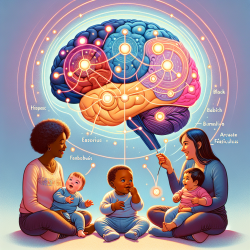The transition to school is a critical period in a child's life, marking the beginning of formal education and social integration. However, not all children enter this phase on equal footing. Recent research highlights the significant role maternal well-being plays in determining a child's risk of developmental problems at school entry.
The Research Findings
A study conducted by Tough et al. (2010) followed a cohort of 791 mothers from early pregnancy until their children reached school age. The research aimed to identify factors associated with children who screened at risk of developmental problems at school entry. The findings revealed that 15% of the children were at high risk, with maternal factors such as a history of abuse during pregnancy and poor parenting morale being significant predictors.
Key Predictors of Developmental Risk
- Maternal History of Abuse: Mothers who reported abuse during pregnancy had children more likely to be at high risk for developmental issues.
- Poor Parenting Morale: Low enthusiasm and capability to endure parenting challenges were linked to higher risks in children.
- Child's Gender: Male children were found to be more susceptible to developmental risks.
Practical Implications for Practitioners
The study underscores the importance of early identification and intervention. Practitioners can play a crucial role in supporting maternal well-being, which in turn can positively impact child development.
Strategies for Practitioners
- Screening for Maternal Well-Being: Incorporate assessments of maternal mental health and history of abuse into routine evaluations during prenatal visits.
- Providing Support Resources: Offer resources such as counseling, support groups, and educational workshops to enhance parenting morale and competence.
- Early Intervention Programs: Develop tailored intervention programs that address identified risks early on, focusing on both maternal support and child development needs.
The Role of Early Intervention
The research highlights that early interventions not only benefit children but also enhance family resources and societal outcomes. By addressing maternal well-being issues early, practitioners can help mitigate long-term developmental problems in children.
Encouraging Further Research
This study opens avenues for further exploration into how specific interventions can be optimized to support maternal well-being effectively. Practitioners are encouraged to engage in ongoing research efforts to refine strategies that address the complex interplay between maternal health and child development.
For those interested in delving deeper into this topic, the original research paper by Tough et al. provides comprehensive insights into the methodologies and findings. Maternal well-being and its association to risk of developmental problems in children at school entry.
Conclusion
The link between maternal well-being and child development is undeniable. By focusing on supporting mothers through their challenges, practitioners can make a lasting impact on children's developmental trajectories. As we continue to learn more about these connections, it's vital to implement findings into practice to foster healthier futures for both mothers and their children.










